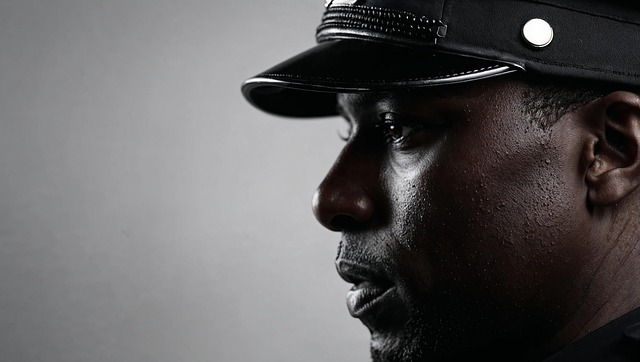Regulatory fraud laws protect market integrity and consumers by penalizing deceptive practices, including misleading financial statements and false advertising. The main challenge lies in the court's burden of proof, requiring prosecutors to demonstrate fraud beyond a reasonable doubt. Despite complexity, legal professionals navigate these hurdles through meticulous evidence collection, digital forensics, and witness testimonies to ensure justice in white-collar crimes.
In an era where regulations govern nearly every industry, understanding regulatory fraud laws is paramount. This article explores the intricate world of these laws, focusing on key definitions and scope. We delve into the challenges organizations face when gathering evidence for fraud cases, especially in light of complex regulations. Additionally, we examine legal standards, burden of proof requirements, and strategies to overcome evidentiary hurdles in court, highlighting practical solutions for navigating these challenging scenarios.
- Understanding Regulatory Fraud Laws: Key Definitions and Scope
- Challenges in Collecting Evidence for Fraud Cases
- Legal Standards and Burden of Proof Requirements
- Impact of Complex Regulations on Fraud Prosecutions
- Strategies to Overcome Evidentiary Hurdles in Court
Understanding Regulatory Fraud Laws: Key Definitions and Scope

Regulatory Fraud Laws are designed to protect the integrity of markets and safeguard consumers by penalizing individuals and entities involved in deceptive practices. Understanding these laws begins with key definitions; fraud, in this context, refers to intentional misrepresentation or concealment of material facts for gain or to avoid loss. The scope includes various forms of misconduct, from misleading financial statements to false advertising, all aimed at distorting market forces.
One of the central challenges in enforcing these laws is the burden of proof in court. Prosecutors must demonstrate beyond a reasonable doubt that fraud occurred, a task made complex by the intricate nature of financial and business transactions. However, with an unprecedented track record of achieving extraordinary results, legal professionals are adept at navigating these complexities, ensuring that justice is served and respective businesses are held accountable for their actions.
Challenges in Collecting Evidence for Fraud Cases

Uncovering regulatory fraud can be a complex and challenging task for investigators due to the intricate nature of financial schemes. One of the primary hurdles is the Challenges in Meeting Burden of Proof in Court. Fraud cases often require extensive documentation and evidence to establish intent, which can be difficult to attain, especially when dealing with sophisticated white-collar crimes. The onus of proof lies heavily on prosecutors, who must navigate a web of financial transactions, contracts, and digital trails.
Across the country, achieving extraordinary results in fraud prosecutions demands a meticulous approach. For his clients, success often hinges on gathering compelling evidence that can withstand judicial scrutiny. This includes examining financial records, analyzing digital forensics, and interviewing witnesses. By employing these strategies, legal professionals can strengthen their cases and ensure that justice is served, regardless of the intricate nature of the alleged fraud.
Legal Standards and Burden of Proof Requirements

Navigating regulatory fraud cases presents unique challenges, particularly when it comes to meeting the burden of proof in court. Legal standards for proving fraud require clear and convincing evidence that demonstrates an intent to deceive. This can be a daunting task as fraud often involves complex financial transactions and intricate schemes, making it a challenging defense for accused parties.
The respective business faces a winning challenging defense verdicts when they can provide compelling documentation, witness testimonies, and expert opinions to counter the prosecution’s claims. In high-stakes jury trials, understanding and presenting this evidence effectively is crucial. The complexity of fraud cases often demands a meticulous approach, where every detail is scrutinized, ensuring that the defense strategy aligns with the legal standards required for a successful outcome.
Impact of Complex Regulations on Fraud Prosecutions

The intricate web of regulations governing business practices presents both a safeguard for consumers and investors and a significant challenge for prosecutors when it comes to white collar and economic crimes. While these laws aim to deter and punish fraudulent activities, the complexity often poses substantial obstacles in fraud prosecutions. The onus of proof lies heavily on investigators and attorneys, who must navigate through reams of documents, intricate financial transactions, and sophisticated schemes to present a compelling case in court.
This challenge is exacerbated by the evolving nature of white collar crimes, which often employ complex strategies to conceal their tracks. As such, prosecutors face the daunting task of unraveling these labyrinthine schemes at all stages of the investigative and enforcement process. The “burden of proof” becomes not merely a legal concept but a tangible barrier, requiring meticulous attention to detail, expert analysis, and robust evidence collection strategies to ensure successful prosecutions and deter future frauds.
Strategies to Overcome Evidentiary Hurdles in Court

Navigating the complexities of regulatory fraud cases often presents significant challenges for both prosecutors and defenders. One of the primary hurdles is the “burden of proof,” which requires presenting compelling evidence to establish guilt beyond a reasonable doubt. In regulatory fraud, where complex financial transactions and intricate documentation are involved, meeting this standard can be daunting. Strategies to overcome these evidentiary challenges include employing expert witnesses who can decipher intricate financial data, cross-examining opposing witnesses, and leveraging detailed case theory to demonstrate the defendant’s guilt or innocence.
Understanding the nuances of white-collar and economic crimes is crucial for crafting effective defense strategies. Corporate and individual clients alike must be represented by robust general criminal defense attorneys who are adept at handling complex cases. These attorneys can scrutinize evidence, identify weaknesses in prosecution theories, and present alternative explanations to challenge the burden of proof. By combining legal expertise with a deep understanding of financial markets and regulations, these defenses aim to ensure fair outcomes for all parties involved.
Regulatory fraud laws are essential tools for maintaining integrity within industries heavily governed by rules. However, the intricate nature of these laws presents significant challenges in meeting the burden of proof in court. Understanding key definitions, navigating complex regulations, and employing effective evidentiary strategies are crucial steps to overcome these hurdles. By adhering to strict legal standards, justice can be served, ensuring that fraudulent activities do not go unnoticed or unpunished.






